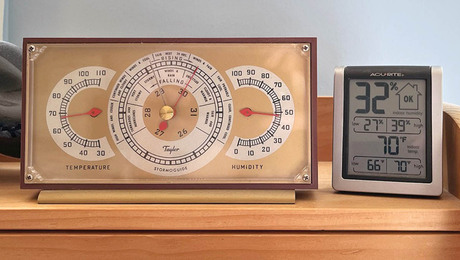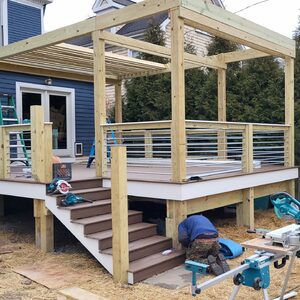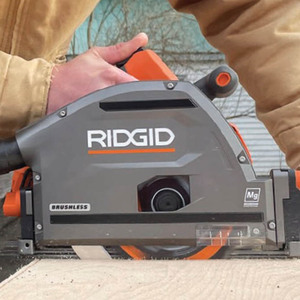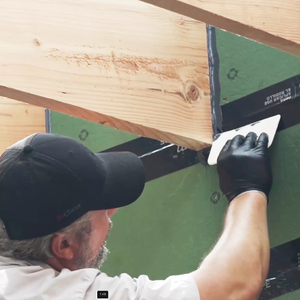electric water heater timer versus heat pump water heater
I installed a water heater timer a few years ago on my 40 gallon water heater. it goes on twice a day for about 2-3 hours each time. we are a family of 4 (2 little ones under 4). To date we have not had any cold showers or any inconvenience. I did a bunch of other changes on the home at the same time (small addition, added some lights , a new baby)..so it is hard to tell any difference in electric usage stemming from the change to the water heater.
The existing water heater is about 15 yrs old…electric 40 gal. we ive in central PA
question:
with the tax credit and technology options…I am considering getting a heat pump water heater to replace the existing set up.
Will I see a savings? versus my existing timer set up? can i put a timer on the heat pump unit? I also run a humidifier in the area of the wter heater…so again maybe a pro for the heat pump scenario.
to further blur the issue, the home has old 20+ year solar hot water collectors on the side of the home. I used this set up for a month or 2 until the tank started leaking(the solar tank). To get the solar water heater system up and running will cost about 1800$..about the cost of the heat pump unit…For the few months I used this set up..i was not impressed…did not generate hot water on cooler days or in evening.
Opinions on what I should do? what are the true savings of water heater timers?


















Replies
The timer is saving you very little. While electric water heaters are (in comparison to gas) expensive to operate (due to the relatively high cost of electricity), they have very low "standby losses" compared to other types of heaters, so turning the unit off saves little. You could improve you efficiency very slightly (maybe 5%) if you replaced the current unit with a top-of-the line unit such as the Marathon, but it's probably not worth the expense.
As to the heat pump unit, it's more than 100% efficient (ie, it pumps heat out of the air). I don't know what typical figures are for a water heater, but a COP of 3 is probably on the low end, so you stand to save about 2/3rds of the money spend on water heating.
But how much do you spend? Well, by my figures it takes on the order of 0.2 KWH to heat one gallon of water. Our house likely doesn't go through 50 gallons a day (I would guess closer to 30), but 50 gallons/day would be 10 KWH/day. What you pay for electricity varies widely across the US, but one chart has PA at about 13 cents per KWH, so you'd be spending about $1.30/day (about $474/year) heating water.
Now certainly a household with three teenage girls could go through a lot more hot water, but that's not your circumstance, apparently.
But, if we take the $474 figure, figure you'd save 2/3rds of that with a heat pump, and multiply it out for a 5 year payback period, you get $1580. This is roughly the cost of a heat pump unit, so at worst it's a wash (keeping in mind that this whole thing is an estimate with at least a 30% error range). (*) Of course, if you were going to replace the water heater anyway, you can subtract out the cost of a conventional unit, making it the heat pump a better deal.
Going back to a conventional unit, if you replace your current one with a super-insulated model and save 5%, that's $118 over 5 years (using the previous thumb suck). Unfortunately the markup on a Marathon unit is something like $500 over the standard unit (though the Marathon should last 20 years with modest maintenance).
------
(*) Do keep in mind that most heat pump water heaters exhaust cold air to the inside. This is a plus in climates where AC use predominates, but a minus in climates where heating is more dominate. Precisely where you are in PA and how well you can replace the heat with outside air could significantly affect efficiency.
Heat pump WH
Pretty good ciphering Dan.
Have you looked at the cost of the GE heat pump WH? A 50gal. unit runs close to $1800. Then you get to back out the federal energy tax credit, state credits, and/or rebate that you can dig up. Then the fyrther north you live you need to factor in the heat loss your heating system has to make up for while the water heater is operating.
The reviews I read said that only the deep south and south western zones would ever achieve any signicant energy savings from the heat pump water heaters. BTW those were engineering reviews, not consumer reviews.
Warrenties were also dicussed. GE only offer a two year warrenty on the heat pump unit and a five year warrenty on the tank. That is kind of weak IMO for a product that is being hyped the way that thing is. With no track record to speak of I decided it wasn't worth the risk either.
Is the heat pump water heater removing the heat from an exhaust/ventilation system? If not, it is removing it from your house. While it may heat water efficiently, it is using the house as the heat source ... which comes from your furnace. In the summer, however, it's great, because it helps cool your house by removing the heat and heating water.
Your timer is nice, but as Dan says ... saves you on the standby losses of your tank ... which generally tend to be a fairly small energy use. If you have it, great, use it. As you say, if your timer is set to be off during the little use periods, you should see no inconvenience (e.g. set it to be off 9pm to 5am and any other large blocks of time with no substantial use).
My understanding of the GE system is that it has a winter setting that doesn't take heat from your home just operates like a regular electric so you get six mths +/- heat pump and 6 mths electric. Could be mistaken but thats what I remember seeing.
Certainly it could be set up that way. But then the payback period would be twice as long.
Why a HPWH is better than a timer
As other commenters have noted, a timer only reduces the standby loss from your water heater. This is generally about 1 kWh/day for better-insulated (higher EF) water heaters, and may be 2 to 4 kWh/day for crummy old water heaters. If your timer leaves the water heater off between about noon and 8 PM, you're doing your electric company a favor by reducing their peak demand. You might be able to join a "controlled water heating" utility program and get paid for shutting it off.
A 15-year old electric water heater is ancient; the average lifetime of an electric water heater is around 9 - 10 years. Marathon tanks, Vaughn Sepco stone-lined tanks and some specialty stainless steel tanks last longer (sometimes approaching forever). In other words, you are on borrowed time. If you were to depreciate your WH like a business would do, you would recognize that it's worthless. Further, all (typically constructed) water heaters eventually fail. You also need to weight the cost of cleaning up after it springs (or blows) a leak. It might be wise to replace it now.
The average plumber would probably tell you that it costs twice as much to operate an 80-gallon electric water heater as a 40-gallon WH. Duh, it's twice as big! This shows their ignorance of operating costs. If the Energy Factor is the same on a 40 vs. an 80 gallon tank, they cost the same to operate, assuming you use the same number of gallons/day. If you like to sing in the shower until the water gets cold, that's a different story.
There, I've just reduced the effective cost of a heat pump water heater (HPWH) for you. You'd have to spend Big Bucks anyway to replace the old WH before it floods your basement. The HPWH now just costs the incremental amount.
Now, about the operating cost of the HPWH... I assume it would go in your basement, where you are running a dehumidifier. I also assume that you aren't intentionally heating your basement. (It may be warm from the waste heat coming off the jacket of your furnace/boiler.) Since you aren't heating the basement, the HPWH can "steal" that heat during the heating-season without costing you anything extra. Some tests that I managed of 45 HPWHs in New England basements showed that the average temperature in the basement was lowered by about 1 to 2 degrees by a HPWH. (We've struggled for years with the question of whether a cooler basement casuses the upstairs to require more heat, and if so, how much. No good answers! I don't think it's measurable.)
If you are actively heating your basement (family/play room, etc.) then during the summer your HPWH is air conditioning and dehumidifying the basement. You can probably shut off your dehumidifier when you have a HPWH. The dehumidifier may be costing you as much as your water heating if it runs continuously. (I don't know of anyone who has measured this, though.)
If the basement is actually heated in the winter, you are actually stealing heat that you paid for. If the HPWH has a Coefficient of Performance (net efficiency) of 2, which is quite reasonable, then half the heat going into the tank is from electricity and half is from the surrounding air. If the air is heated by a fuel that is cheaper than electricity, then your water heating cost is still lower than it would be with a regular electric water heater. If the basement is heated with electric baseboards, they you could let the HPWH run or shut it off; it wouldn't matter, economically.
The stuff about HPWHs not being useful in northern climates is only spoken by southerners or Californians who think all water heaters are installed in garages. Your basement probably never goes below 50 degrees, so the HPWH doesn't "know" it in the North.
I hopes this helps you make a decision. (I know I'm biased! I've owned 3 or 4 HPWHs in the last 25 years.)
A 15-year old electric water heater is ancient; the average lifetime of an electric water heater is around 9 - 10 years.
Our standard State 52 gallon electric water heater is 34 years old.